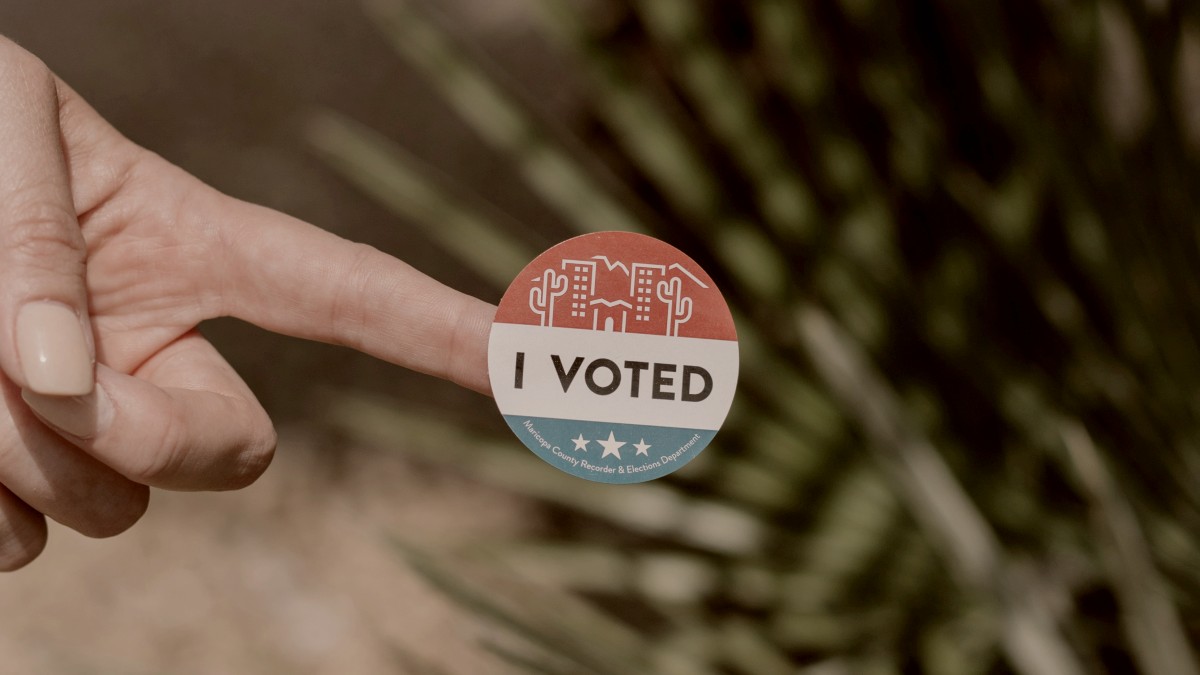
3 Reasons Why You Should Vet Before You Vote
How well do you know who you're voting for? Here's why you need to get more well-acquainted with them.

By Mark Travers, Ph.D. | October 09, 2024
Regardless of which side of the fence you are on, every American voter has a big decision to make this year. This decision cannot be taken lightly, as it could alter the course of the next four years and perhaps even the rest of our lives.
Whether you are clear about who you are supporting or sitting on the fence, the question you should ask yourself is—how well do I know the person I'm voting for?
When was the last time you thoroughly researched the politician you are supporting? No, not just skimming their social media posts or eagerly listening to their charismatic speeches. When did you last delve into their policies, ideological stances and past actions?
For many people, this sounds like tedious work. Some feel that the more they keep politics out of their homes, the less complicated their lives will be — but this is not always true. Understanding who we're giving power to is crucial for a healthy society and our well-being.
No one likes to believe they can be misled by authority, but history tells us otherwise. Even if you are sure you are making the right choice, here are three reasons why you should do your homework on the people you vote for.
1. Blind Obedience To Authority Is Dangerous
Many times in our lives, we listen to people who "seem" to know what they are saying, without questioning if they are right. It could be an uncertified fitness influencer who tells us how much protein we need or a TikTok therapist who tells us how to recognize a narcissist. Think about it — do we really stop to check the facts or question their credibility?
When someone seems confident in their words, it's easy to think, "they must know what they're talking about." This phenomenon of blind obedience is more common than we like to admit and can be highly dangerous.
A 2014 study published in PLOS One explains how concerning such obedience can be. It looks back on Stanley Milgram's famous experiment back in the 1960s, in which ordinary people were willing to administer what they thought were harmful electric shocks to others, simply because an authority figure told them to. Milgram's work shows us that when the right people coerce us, we not only follow orders — we also stop questioning the morality or consequences of our actions.
You might think, "I wouldn't do that." But when you vote for someone without understanding the full scope of their policies, you practice blind obedience. You prove that you will listen to this person, whether or not they truly align with your sense of morality.
2. Unconscious Bias Can Influence Your Vote
Let's be honest—voting is emotional. Maybe you relate to a candidate's backstory or feel inspired by their presentation. But have you ever considered whether your personal bias might keep you from making a truly informed choice?
Unconscious bias is a part of human nature, but it shouldn't be a factor when making critical decisions. A 2021 study suggests that unconscious bias can make us believe that certain people have authority over us even when the opposite is true.
For instance, we may perceive a person who presents as messy to be lower in stature than us, while someone in uniform will automatically be perceived as an authority figure.
These biases can create blind spots, especially when we support people we think align with our interests, only to find out later that they could hurt us. When we let our biases take the wheel, we end up supporting policies that do more harm than good, often without realizing it.
3. The 'Personality Vote' Can Backfire
Politicians know how to sell themselves; it's part of the job. However, voting based on personality is like choosing a flashy car without checking if it runs well. It's vital to think beyond the person and examine their policies through a wider lens.
A 2014 study published in the Journal of Research in Personality found that people tend to vote for those they perceive as similar to themselves. Researchers found that, unfortunately, participants came to this conclusion after watching only short, soundless video clips of certain politicians, suggesting a lack of critical evaluation.
A person might charm you into believing they will shake things up, but will they create the changes society needs? Here is where critical thinking comes into play. Instead of focusing on how a politician makes you feel in the short term, start asking: What are their long-term plans? Are they proposing solutions that will address systemic issues? Are they thinking beyond their interests?
Voting is a powerful act, but it requires careful thought and discernment. So, before you cast your next vote, ensure that you are not contributing to a system that doesn't serve you or others well. The health of democracy relies on the vigilance of its citizens. Your informed choice today could be the catalyst for positive change tomorrow.
Are you someone who buys into conspiracy theories and misinformation? Take this test to find out: Generic Conspiracist Beliefs Scale
A similar version of this article can also be found on Forbes.com, here.
